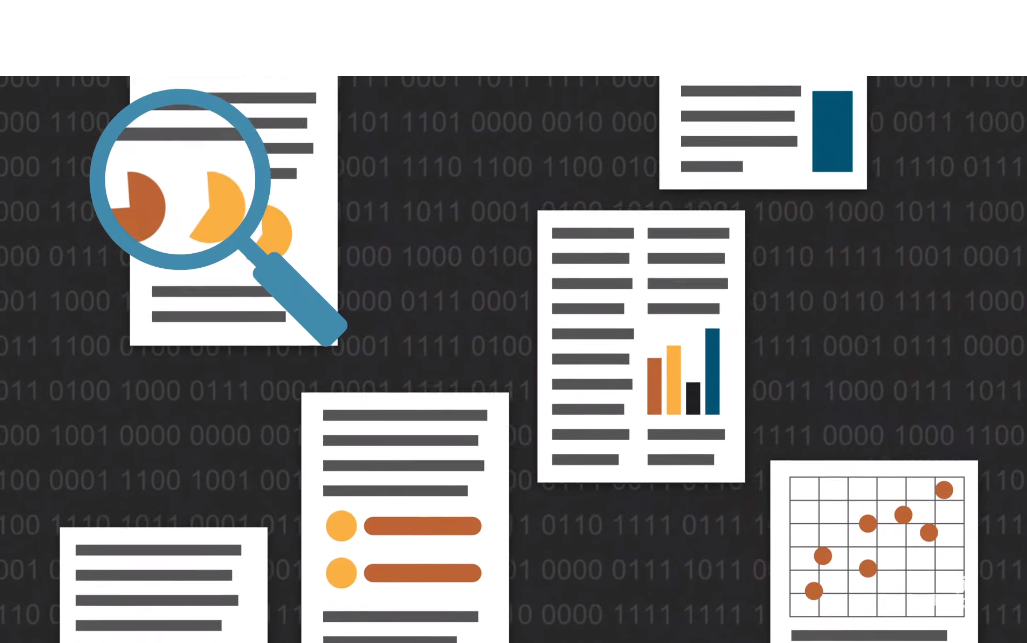Introduction

Data mining has become essential for businesses and organizations to extract valuable insights from large datasets. However, with the increasing use of data mining techniques, privacy concerns have also arisen. Unfortunately, many myths and misconceptions surrounding data mining privacy can lead to confusion and misinformation. In this article, we will debunk some of the most common myths and mistakes about data mining privacy to help you better understand the risks and benefits of this powerful technology.
What Are The Most Common Myths And Mistakes About Data Mining Privacy?
Some of the most common myths and mistakes about data mining privacy include:
Data Mining Is Always Invasive And Violates Privacy
Reality: Data mining can be used in a variety of ways, some of which are completely harmless and even beneficial. It is only when data mining is used to collect and analyze personal information without consent that privacy violations occur.
Data Mining Is Illegal

Reality: Data mining is a legal practice as long as it is done in compliance with relevant laws and regulations. However, certain types of data are protected by privacy laws, such as health and financial data, and special care must be taken when mining this information.
Anonymizing Data Is Enough To Protect Privacy
Reality: Anonymizing data can help protect privacy, but it is not foolproof. In some cases, re-identifying individuals from supposedly anonymous data sets is possible. Additionally, even if individuals cannot be identified, data mining can still reveal sensitive information about them. Therefore, it is important to use multiple techniques, such as data masking and encryption, to protect privacy.
Data Mining Is Only Useful For Large Companies
Reality: Data mining can benefit organizations of all sizes. Small businesses can use it to gain insights into customer behavior and preferences, while non-profit organizations can use it to identify potential donors and improve fundraising efforts. The key is to identify the specific goals and challenges of the organization and use data mining to address them.
Data Mining Is Only For Technical Experts
Reality: While data mining does involve technical skills, there are many user-friendly tools and software available that make it accessible to non-technical users. Additionally, organizations can hire data analysts or outsource data mining services to experts in the field.
Data Mining Is Expensive
Reality: While there may be costs associated with acquiring and maintaining the necessary technology and expertise, data mining can ultimately save organizations money by identifying inefficiencies and areas for improvement. It can also help organizations make more informed decisions, leading to increased profits and cost savings in the long run. Additionally, there are many open-source and affordable data mining tools available that can help reduce costs.
Mistakes In Data Mining Privacy
Collecting Too Much Data
Data mining is a powerful tool that can provide valuable insights to organizations. However, it is important to be aware of potential mistakes that can compromise privacy. One common mistake is collecting too much data. While it may be tempting to gather as much information as possible, it can lead to privacy violations and data breaches. It is important to only collect data that is necessary for the intended purpose and to have proper security measures in place to protect the data.
Failing To Secure Data
Another common mistake is failing to properly secure the data that has been collected. This can include not having strong enough passwords, not encrypting sensitive information, or not regularly updating security protocols. Without proper security measures, data can easily be accessed by unauthorized individuals and can be used for malicious purposes. It is important to prioritize data security and regularly assess and update security measures to prevent breaches.
Misinterpreting Data
Misinterpreting data is another common mistake that can have serious consequences. It is important to have a clear understanding of the data being collected and to analyze it accurately. Misinterpreting data can lead to incorrect conclusions, poor decision-making, and wasted resources. To avoid this mistake, it is important to have a clear understanding of the data being collected, use reliable analysis methods, and seek input from experts if needed. Additionally, it is important to regularly review and update analytical methods to ensure they are up-to-date and accurate. In addition to accurately analyzing data, it is also crucial to effectively communicate the results to others. This includes presenting the data clearly and concisely, using appropriate visual aids, and explaining any limitations or uncertainties in the data. Effective communication of data can help ensure that decision-makers have the information they need to make informed choices.
Ignoring Privacy Regulations
In today’s digital age, data privacy is a critical concern. Ignoring privacy regulations can lead to severe consequences, including legal penalties and damage to a company’s reputation. It is essential to comply with all applicable privacy regulations, such as GDPR or CCPA, and ensure that all data is collected, stored, and processed securely. This includes implementing appropriate security measures, such as encryption and access controls, and obtaining explicit consent from individuals before collecting their data. By prioritizing data privacy, companies can build trust with their customers and protect their sensitive information from unauthorized access or misuse. It’s also important to regularly review and update privacy policies and procedures to ensure they remain in compliance with any changes to regulations or industry standards. By doing so, companies can demonstrate their commitment to protecting their customers’ privacy and maintain a positive reputation in the marketplace.
The Realities Of Data Mining Privacy
The Impact Of Data Mining On Privacy
Data mining can have a significant impact on privacy, as it involves the collection, analysis, and use of large amounts of personal data. This data can include sensitive information such as financial records, medical history, and personal preferences. If this data falls into the wrong hands, it can be used for malicious purposes such as identity theft or fraud. Additionally, data mining can lead to the creation of detailed profiles of individuals, which can be used for targeted advertising or other purposes without their knowledge or consent.
The Benefits Of Data Mining
Data mining can provide numerous benefits for businesses and organizations. By analyzing large amounts of data, they can gain insights into customer behavior, preferences, and trends, which can be used to improve products and services, optimize marketing strategies, and make better business decisions. Data mining can also help identify potential risks and opportunities, detect fraud and other types of illegal activity, and improve operational efficiency. Additionally, data mining can be used in scientific research to uncover new insights and patterns in large datasets.
Best Practices For Data Mining Privacy
When it comes to data mining privacy, there are several best practices that organizations should follow:
1. Obtain consent: Organizations should obtain consent from individuals before collecting and using their data for data mining purposes.
2. Anonymize data: Organizations should anonymize data before using it for data mining purposes to protect individuals’ privacy.
3. Use secure methods: Organizations should use secure methods to store and transmit data to prevent unauthorized access.
4. Limit access: Organizations should limit access to data mining tools and data to only authorized personnel to prevent misuse or unauthorized access.
5. Be transparent: Organizations should be transparent about their data mining practices and inform individuals about the purpose and scope of data mining activities.
6. Provide opt-out options: Organizations should provide individuals with the option to opt out of data mining activities if they choose to do so.
7. Regularly review and update policies: Organizations should regularly review and update their data mining policies to ensure they comply with privacy laws and regulations.
Case Studies
Cambridge Analytica Scandal
Explanation Of The Scandal And Its Implications For Data Mining Privacy
The Cambridge Analytica scandal was a major data mining scandal that occurred in 2018. The scandal involved the unauthorized harvesting of data from millions of Facebook users by the political consulting firm Cambridge Analytica. The data was collected through a third-party app that was used to collect personal information from Facebook users. This data was then used by Cambridge Analytica to create targeted political ads during the 2016 US presidential election. The implications of this scandal for data mining privacy are significant. It highlighted the need for stricter regulations and greater transparency regarding data collection and usage by companies. It also raised concerns about the potential misuse of personal data for political gain. In response to the scandal, Facebook implemented changes to its data privacy policies and faced significant backlash from users and government officials. The incident serves as a reminder of the importance of protecting personal data and the potential consequences of failing to do so.
Target’s Pregnancy Prediction Algorithm
Discussion Of The Algorithm And Its Impact On Privacy
In 2012, Target, a popular retail chain, made headlines for its pregnancy prediction algorithm. The algorithm was designed to analyze customers’ purchasing patterns and predict whether or not they were pregnant. Target then used this information to send targeted marketing promotions to expectant mothers. While the algorithm was intended to improve customer experience and boost sales, it raised concerns about privacy and data collection. Customers were uncomfortable with the idea of a retailer tracking their personal information and using it to make assumptions about their health and personal lives. In response to these concerns, Target made changes to its data collection and marketing practices. They now offer customers the option to opt out of personalized marketing promotions based on their personal information. Additionally, they have increased transparency about their data collection practices and how they use customer information.
It is suggested that you consider the potential ethical implications of using customer data for marketing purposes. It is important to be transparent with customers about how their data is collected and used and to give them the option to opt out of any personalized marketing promotions. This not only helps to build trust with customers but also ensures that their privacy is respected. Furthermore, it is important to ensure that customer data is kept secure and protected from any potential breaches or misuse. This can be achieved by implementing strong data security measures and regularly reviewing and updating them.
Google’s Privacy Violations

Overview Of Google’s Privacy Violations And Their Consequences
Google has faced several privacy violations over the years, including the collection of personal data from unsecured Wi-Fi networks by its Street View cars, the sharing of user data with third-party app developers without proper consent, and the tracking of users’ location data even when location services were turned off. These violations have resulted in significant fines and legal action against the company, as well as damage to its reputation and loss of trust from users. In 2019, Google was fined $57 million by French regulators.
Conclusion
Companies need to prioritize user privacy and implement best practices in data mining to avoid privacy violations. This includes obtaining user consent before collecting and using their data, providing transparency about how their data is being used, and ensuring that user data is securely stored and protected. By prioritizing user privacy, companies can build trust with their users and avoid legal and financial consequences.
Frequently Asked Questions (FAQs)
What Is Data Mining?
Data mining is the process of extracting useful information or patterns from large sets of data. It involves analyzing data from various sources, such as databases, social media, and web pages, to discover hidden insights and make informed decisions. Data mining can be used in various industries, including finance, healthcare, marketing, and technology.
What Are The Risks Of Data Mining?
The risks of data mining can include legal and financial consequences if done improperly. This can include violating privacy laws, mishandling sensitive data, or using data in a discriminatory manner. Additionally, data mining can lead to inaccurate or biased results if the data used is incomplete or flawed. Organizations need to have proper policies and procedures in place to ensure ethical and responsible data mining practices.
How Can Data Mining Benefit Society?
Data mining can benefit society in many ways. One of the most significant benefits is that it can help identify patterns and trends in large datasets that can be used to improve decision-making in various fields such as healthcare, finance, and education. For example, data mining can be used to identify risk factors for certain diseases, which can help healthcare providers develop more effective prevention and treatment strategies. In finance, data mining can be used to detect fraud and identify investment opportunities. In education, data mining can be used
What Are The Best Practices For Data Mining Privacy?
Here are some best practices for data mining privacy:
1. Obtain consent: Obtain consent from individuals before collecting and using their data.
2. Anonymize data: Anonymize data before mining it to protect the privacy of individuals.
3. Limit data collection: Collect only the data that is necessary for the intended purpose of the data mining project.
4. Secure data storage: Store the data in a secure location to prevent unauthorized access.
5. Use encryption: Use encryption to protect the data during transmission and storage.
6. Implement access controls: Implement access controls to ensure that only authorized individuals have access to the data.
7. Conduct regular audits: Conduct regular audits to identify and address any potential privacy breaches.
8. Provide transparency: Be transparent about the data mining process and provide individuals with information about how their data will be used.
9. Follow applicable laws and regulations: Ensure that the data mining project complies with all applicable laws and regulations related to data privacy.
10. Educate users: Educate users about data privacy and the importance of protecting their personal information. Provide clear and concise information about how their data will be used and give them the option to opt out if they choose to do so.
What Are The Consequences Of Non-Compliance With Privacy Regulations?
The consequences of non-compliance with privacy regulations can be severe and may include legal penalties, fines, reputational damage, loss of customer trust, and even criminal charges in some cases. Additionally, non-compliance can lead to data breaches, which can result in the loss or theft of sensitive information, financial losses, and potential legal action from affected individuals. Organizations need to take data privacy seriously and ensure that they comply with all applicable laws and regulations.
